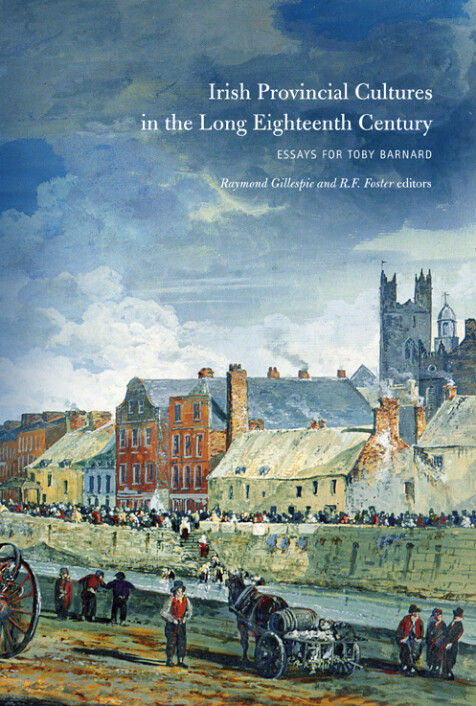Irish provincial cultures in the long eighteenth century
Essays for Toby Barnard
Raymond Gillespie & R.F. Foster, editors
In this book, thirteen distinguished historians of early modern Ireland recreate the lost world of those who carved out a middle position between the aristocracy and the tenantry of provincial Ireland. These essays chart the sometimes easy relationships between local and wider worlds, consider the societies that those in provincial Ireland made for themselves and document the material goods with which they adorned the places they occupied. By considering aspects of the long eighteenth century as diverse as music, wine consumption, buildings, paintings, plasterwork and print as well as the better-known subjects of the law, landlord improvement and literary patronage, this volume builds a fascinating picture of a restless society trying to adapt itself to the needs of a complex and divided world. These essays provide new insights and perspectives on a world that is usually seen through the windows of the parliament house or the episcopal palace. In doing so they reveal much about the texture of a world that is gradually coming to be understood as the fascinating and complex society that it was, in which the middling sort sought their own salvation in a vortex of political, economic and religious change.
Contributors: John Bergin (QUB), Christine Casey (TCD), Bernadette Cunningham (RIA), Jane Fenlon (UCD), Alison FitzGerald (NUIM), David Fleming (U Limerick), R.F. Foster (U Oxford), Raymond Gillespie (NUIM), D.W. Hayton (QUB), Livia Hurley (RIA), James Kelly (SPCD), Marie-Louise Legg (ind.), Rolf Loeber (U Pittsburgh), Edward McParland (TCD).
R.F. Foster is Carroll Professor of Irish History at the University of Oxford. He is the author of many books on the political, social, cultural and literary history of Ireland. He is a Fellow of the British Academy, an Honorary Member of the Royal Irish Academy and a well-known cultural commentator and critic. Raymond Gillespie teaches in the department of History, NUI Maynooth. He has written extensively on the social, economic and cultural history of early modern Ireland.

